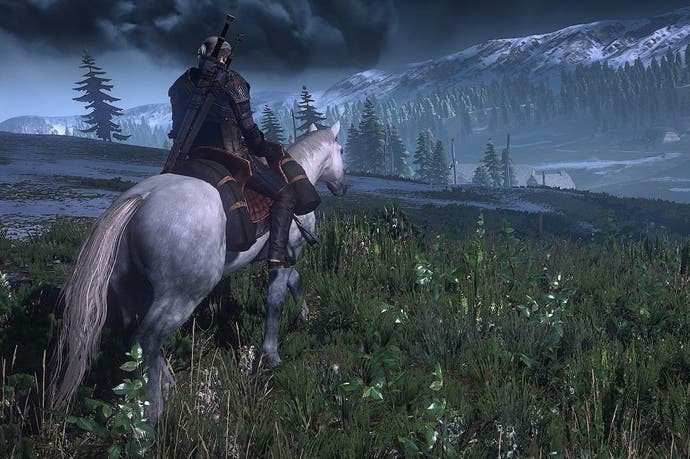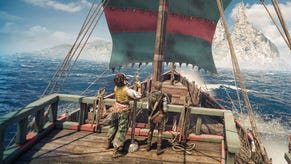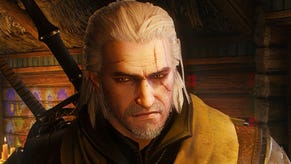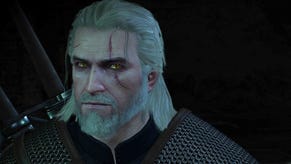The Witcher 3 is one of the best war games there's ever been
World of war craft.
The thing that The Witcher 3 does best, better than most other games, is war. This doesn't sound remarkable until you consider the huge number of games that are specifically about war - that make you do war and be in it - and that war itself never appears in The Witcher, at least not directly. We see battlefields and garrisons, occupations and barricades, but never open conflict. War is in a constant state of passing through, enormous and unseen, always at some distant proximity, but written into the land of The Witcher 3 and the people on it, in magic and misery.
Conflict in the world of The Witcher is born of a political situation so complicated that there is an NPC in Vizima whose only function is to explain to you what side everybody is on. He's great, actually - Ambassador var Atlre, one of the dozens of quietly human characters that help give the game its sense of remarkable depth. He's on to a loser here, though, because without obvious heroes and villains his dry account of frontiers and fighting remains impenetrable to all but the Witcher faithful. The war is confusing, indistinct - and that's about right, actually, because the story of war The Witcher tells is specifically one of ordinary people, for whom war is confusing, and details superfluous.
Actually it's misleading to call it a story - The Witcher 3 is more like a collection of stories, a chorus of fables and morality plays. So much of the character of the game resides in the weary, accumulated wisdom of the side quests and incidental plotlines that Geralt stumbles into. Here decisive ethical strokes are invariably parried, while a combination of duty, hunger, fear and idealism asserts over and over again the impossibility of neat and total fixes. One of the game's first quests, Missing In Action, has Geralt searching through corpses on a fresh battlefield looking for the brother of a nervous villager. He finds the man nearby, hiding with a deserter from the enemy army - the two wounded soldiers had helped each other from the field, and now the found brother would shelter his unlikely friend. It falls to Geralt to make the imperfect choice - to murder the Nilfgaardian, or convince a man to put his family at risk for a stranger.
The pattern is repeated over and over. In White Orchard Geralt helps a dwarven blacksmith whose forge has been burnt in retaliation for helping the invading Nilfgaardians. Track down the culprit and refuse his bribe - the "good" choice, we unswervable detectives think - and the dwarf summons the Nilfgaardians to hang the drunk and desperate peasant while Geralt looks on, uneasily. Sure - the guy was sort of racist and definitely an arsonist, but, man, that dwarf is a dick. Perhaps most telling of all, a little later, Geralt meets a Nilfgaardian captain demonstrating his everyman qualities to a trembling farmer by showing off the calluses on his hands, addressing him "peasant to peasant" as he negotiates a requisition of grain. The next time we see the captain he's ordering the farmer to be flogged, because the grain was rotten. "What would you do in my stead?" he asks Geralt, who gets to reply, truthfully and unfairly, "Wouldn't ever be in your stead."
Geralt stands apart from the world and everyone in it, freed from impossible choices. He's a brilliant creation, the perfect body in which to tour the no-man's murk of Velen and beyond - a powerful, neutral force, like a wandering ronin. In fact bits of Geralt - his tied hair and long swords, his spinning fighting style and that wolfish look - are so reminiscent of Toshiro Mifune, the star of Akira Kurosawa's samurai films, that you get the feeling Mifune must have been in CD Projekt's minds as they built their version of Geralt.
I rewatched Kurosawa's Yojimbo recently and there's a moment when Mifune squares off with a band of small-town thugs - who even look like a gaggle of NPCs, all shorter, thinner and less substantial than Mifune, all bound by the visual grammar of video game toughness - and I thought "I've played this." In fact I've come to see Geralt as a compound creation, comprised of both Mifune's samurai and Clint Eastwood's translation of the same character from Sergio Leone's bootleg Yojimbo remake, A Fisftul Of Dollars. Geralt has Eastwood's scowling eyes and, most importantly for English-language players, something of Eastwood's voice, a unsurprisable veteran's drawl. They are all three men of the frontier, source of both hope and fear to ordinary folk who instinctively grasp that they are somehow summoned by the very conflicts they protect against.
The samurai connection also places The Witcher in a tradition of stories which flee to the supernatural in order to explain the uncanny wrench of war, stories like Kaneto Shindo's Onibaba and Kuroneko. Magic in The Witcher is a manifest part of the game's moral make-up - monsters are occasionally simple remnants of a wild world, but more often than not the supernatural represents a wound or a wronging. There are wraiths staked to the land by misdeeds, parasitic shadow spirits called Hymns which feed on guilt, and above all various species of necrophage - ghouls and nekkers and drowners - feeding on the fallen, digging up corpses, dragging our transgressions back into the light. Geralt's bestiary is thick and thriving, a compendium of how the faults and failures of the living are remembered by the dead, and otherwise transfigured into the monstrous and inhuman.
While its monsters are often inseparable from the landscape, haunting it, living in and under it in nests and caves, the land of The Witcher 3 is wonderfully indifferent to conflict and politics. It is a disruptively good-looking place to exist, inviting constant stopping, framing and admiring. It's time consuming and also timeless - literally, in relation to the game's narrative track, which I would escape for pointless and irresistible rides over hills and towards sunsets, the events of Geralt's hunt for Ciri, the end of the world and everything, paused for however long I chose to sail and gallop and sightsee.
Robert Macfarlane wrote that paths are "the habits of a landscape", collectively traced marks of the ways it can be travelled, and that is how The Witcher's roads and walkways feel - part of a living space. But paths are also an invitation, an offer of discovery, and I've come to the conclusion that my favourite thing about the world of The Witcher is this discoverability, how rigged it is for revelation and adventure. It doesn't feel like a flat map of things which exist in two-dimensional relation to each other - it feels like a textured world of openings and opportunities, of doorways and secrets. I have a sense as I ride through the world of how continually, bafflingly immersive it is, constantly matching child-me's conception of what a fantasy landscape should look and feel like - swaying trees, distant mountains, dramatic and unlikely feats of architecture. War is not the only thing this world can do.
And, of course, The Witcher 3 isn't just about war. It's also about a ridiculous number of other things - about stealing dried fish, about courting an unlikely number of sorceresses (truly, it is often harder to stop Geralt having sex than just letting him get on with it), about card games and fistfights, about treasure hunting and male grooming (Geralt has his own downloadable beard pack - the world's first two-sworded styleable warrior Barbie). But war is the thing it does best, invisibly and indirectly but also ever-presently, and it does it better than almost all other games.










